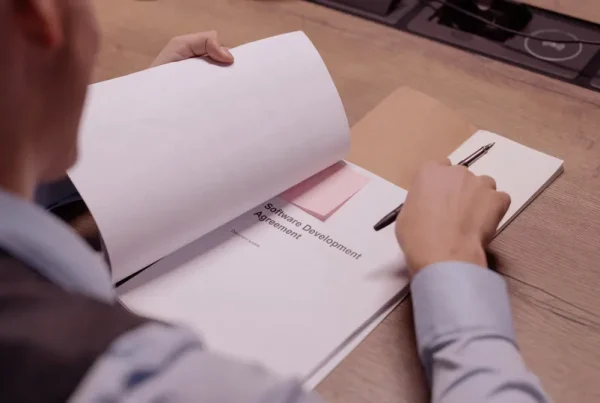Validation and Verification Assistant Manager
Position Purpose & Summary:
The job purpose of a Validation and Verification Assistant Manager revolves around ensuring that systems, processes, or products meet predefined standards, specifications, and regulatory requirements. Validation and verification are essential steps in various industries, including software development, manufacturing, and quality assurance.
The Validation and Verification Assistant Manager plays a crucial role in maintaining and enhancing the quality, reliability, and compliance of products and processes within an organization.
Their responsibilities span across planning, execution, documentation, and continuous improvement to ensure that validation and verification activities align with organizational objectives and industry standards.
Primary Duties & Responsibilities:
Validation and Verification Planning:
Develop comprehensive plans for validation and verification activities, outlining the scope, objectives, resources, and timelines. Collaborate with cross-functional teams to align plans with project goals.
Compliance Assurance:
Ensure that products, systems, or processes comply with industry standards, regulatory requirements, and internal quality standards.
Stay informed about relevant regulations and standards affecting the organization.
Verification Procedures:
Develop and implement verification procedures and test protocols to assess the functionality and performance of systems or products. Conduct thorough testing to identify and address any deviations from requirements
Validation Protocols:
Create and execute validation protocols for equipment, processes, or software. Document and report the results of validation activities.
Risk Management:
Identify and assess potential risks associated with products, systems, or processes. Develop strategies for risk mitigation and ensure that validation processes address identified risks.
Documentation Management:
Maintain comprehensive documentation related to validation and verification activities. Ensure that documentation is accurate, up-to-date, and accessible to relevant teams.
Change Control:
Implement change control processes to assess and validate changes to products, processes, or systems. Ensure that changes are implemented in a controlled and validated manner.
Test Automation:
Explore and implement test automation strategies to enhance the efficiency and effectiveness of verification processes. Stay informed about advancements in test automation tools and technologies.
Academic Qualification:
- Degree in a relevant field such as Engineering
Computer Science Life Sciences, or a related discipline. - A master’s degree may be preferred
Professional Qualification and/or Regulatory, Licensing requirements:
- Relevant certifications, such as CVP, CSTP, CQE, PMP, or equivalent
Technical Skills
Validation and Verification Principles:
In-depth understanding of validation and verification principles and methodologies. Ability to apply these principles to various systems, processes, and products.
Regulatory Knowledge:
Familiarity with industry-specific regulatory requirements and standards. Knowledge of relevant regulations such as ISO standards.
Quality Assurance:
Knowledge of quality assurance principles to ensure that validation and verification processes meet quality standards.
Industry-Specific Knowledge:
Industry-specific knowledge related to the products or services offered by the organization. For example, information technology, or manufacturing industry knowledge.
Risk Management:
Ability to identify, assess, and mitigate risks associated with validation and verification processes. Implementation of risk mitigation strategies.
Change Control:
Knowledge of change control processes to assess and validate changes to products, processes, or systems. Ensuring changes are implemented in a controlled and validated manner.
Documentation Management:
Proficiency in creating and maintaining comprehensive documentation related to validation and verification activities. Experience in following Good Documentation Practices (GDP).
Data Analysis: Data analysis skills to assess validation and verification data and ensure alignment with specified requirements. Providing insights and recommendations based on data analysis.
Audits and Inspections:
Experience in preparing for and participating in audits and inspections related to validation and verification processes. Addressing findings and implementing corrective actions.
Soft Skills
Communication skills – Clear and effective communication with team members, cross-functional teams, and stakeholders. Ability to convey complex technical information in a manner understandable to non-technical stakeholders.
Team Collaboration – Strong collaborative skills for working with cross-functional teams, including engineering, quality assurance, and regulatory affairs. Building and maintaining positive relationships within the team and across departments.
Adaptability – Flexibility and adaptability to handle changing project requirements, emerging technologies, and industry trends. Ability to adjust strategies based on feedback and new information.
Change Management – Ability to navigate and lead through change, especially when implementing new systems or processes. Communication skills to manage expectations and mitigate resistance.
Leadership – Ability to inspire and lead teams, fostering a positive and collaborative work environment. Providing guidance and direction to team members involved in validation and verification activities
Experience:
Proven experience in planning, executing, and overseeing validation and verification activities
Hands-on involvement in creating and executing validation protocols for systems, processes, or products
Practical experience in ensuring compliance with relevant regulatory standards and requirements
Demonstrated project management skills, including the ability to plan, monitor, and execute validation and verification projects
Experience in identifying, assessing, and mitigating risks associated with validation and verification processes
Strong skills in creating and maintaining comprehensive documentation related to validation and verification activities
Experience in implementing and managing change control processes to assess and validate changes to products, processes, or systems
Experience in ensuring that validated products or systems meet customer expectations and satisfaction
Experience in analyzing validation and verification data to ensure that products and processes meet specified requirements


